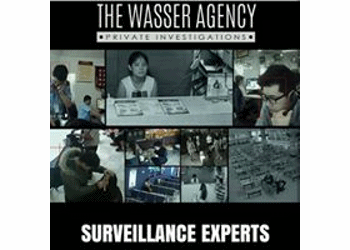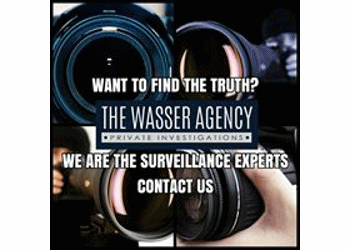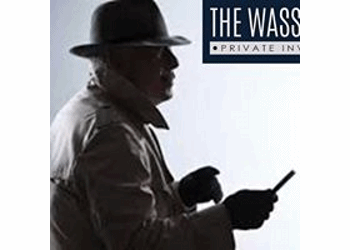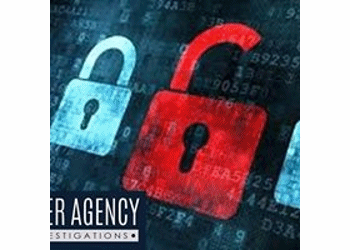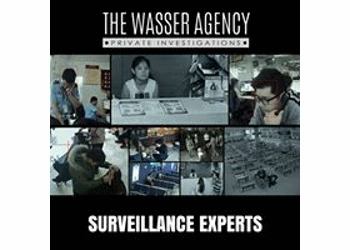Private Investigator Miami Beach South Beach
Private investigation is an easy profession to get into at any age, and it is a career that can be fulfilling, meaningful and a good fit for the natural talent and personality of people at all stages of career development. The young and inexperienced most probably will start out as field investigators, working in a detective agency and spending most of their time conducting surveillance.
Successful newcomers bring tremendous energy into their work and find that the work suits their personality so well that it often feels more like play. They combine luck with common sense and “street smarts” to get results. They get plenty of practice thinking on their feet, looking over their shoulders, and coming up with fast answers if “caught in the middle of something.” Hard work and persistence will be rewarded with many years of challenging work and the ability to handle the many career transitions that lead to success and financial security.
Middle-aged individuals making a career change or returning to the job market will find private investigation an ideal next profession. The most successful of these will have cultivated a genuine interest in people and the problems and motivations that come to bear on their lives. Because of their life experiences and maturity, they are able to deal with varying, often unpredictable circumstances.
Being able to do what comes naturally, and what you are good at, is essential to the success of investigators. Middle-aged individuals recognize their strengths and preferences because of their varied experiences, and often they are able to more easily identify and pursue the types of investigation that suit them.
Since investigation work is so varied, they can focus on work that fits their unique mental and physical abilities. A third common group of new investigators comprises former law enforcement officials, and these professionals make the transition easily. The biggest difficulty they usually have is adjusting to new investigative formats for the variety of civil and business investigations that were not part of their previous responsibilities. They bring with them their cultivated “official” demeanor and find new challenges in running their own detective agencies as a business, as opposed to being a civil-service employee.
Private investigation is a profession for men and women of all ages, at any stage in their career development. To be successful at it, you must be properly trained and know how to apply proper procedures and investigative techniques.
For people in any of the three categories, learning private investigation does not require a college education or formal law enforcement training, although the latter can be helpful.
Success requires learning the proper procedures and applying the right investigative technique to each situation. That’s the knowledge this text provides you, in full, along with how to perform your duties in an ethical and legal manner. By taking DTI’s training course, you will learn to operate at the highest ethical level, which is necessary to function as a qualified and professional investigator. Just follow the Road Maps throughout your course and you will find your lessons interesting and very informative.
A Private investigation can be defined as the process of fact assimilation. It is the systematic collection of evidence necessary to support or refute a claim, whether it is civil or criminal in nature. Private investigation is the process of observation, close inspection, and analysis, as well as the continuous and regular inquiry into a specific subject. Private investigation is the search and journey toward the reconstruction of events and conditions pertinent to a client’s needs and interest. It is the collection of information to resolve factual disputes and clarify confusing data. It can also be the supplying of independent pieces of information, such as names, addresses and place of employment (POE).
Definitions of Private Investigator
From its Latin derivative, vestigare, investigation implies a tracking, a search, assimilation, or a collection of information and facts. This essential function is common to all types of investigations, regardless of their special purposes. The following definitions of two of the major types discussed amplify the general definition and provide more detail.
General Investigator
Although each state defines private investigator differently, the statutes in many states have generally defined it as “any person who engages in the business of, or accepts employment to make, investigations to determine information of crimes or civil wrongs; the location, disposition, or recovery of stolen property; the cause of accidents, fires, damages or injury to persons or to property; or evidence to be used before any court, board, officer, or investigative committee.’”
Legal investigators are routinely assigned to reconstruct accident scenes or to determine the authenticity of claims.
Legal Investigator
Legal investigators are trained in techniques of fact-finding and forensic procedures (applying scientific and medical knowledge to legal matters for formal argumentation in a law court). They are committed to the pursuit of truth because it is only by having verified facts at hand that an attorney can intelligently apply the law in the best interest of a client. As we saw earlier, the goal is to assemble as complete a factual picture of a situation as possible so that a case can be prepared for trial.
Legal investigations differ from general investigations in that they include the following uniform practices:
A logical investigative or procedural sequence must be followed.
Real, physical evidence must be legally obtained.
Real, physical evidence must be properly stored and preserved.
Witnesses must be identified, interviewed and prepared for any potential or actual litigation.
Reports and documentation must be collected.
Information must be accurately and completely recorded.
Evidence collected must correlate to the claim, the cause of action, or the offense charged.
125,000 Private Investigators
Private Investigator Miami Beach South Beach
It is estimated that there are at least 50,000 private investigation agencies in the United States. Since an agency employs an average of 2.5 investigators each, this gives an estimated 125,000 private investigators in the United States. Your prospect of obtaining a position in a detective agency is good, especially after you become a DTI graduate.
Ethics and Professional
Conduct to avoid unlawfully and reputation endangering activities, private investigators need strong professional ethics for guidance. They must always comply with the law and professional standards of conduct, especially today when private investigators frequently
make the headlines for illegal and unethical conduct. Professional investigators carry with them special investigative abilities that ordinary citizens do not have. They have the legal
right to determine a person’s background, current employment, unlisted telephone number, financial status, etc. With these abilities comes the obligation to adhere to strong ethical and professional conduct standards. Failure to do so subjects an investigator to potential legal prosecution and license revocation.
The areas in which investigators most frequently violate ethical and legal guidelines are:
Privacy and confidentiality issues
Bending the laws to further an investigation
Clients need to trust that you are using lawful and acceptable techniques to handle their investigation competently and that you both fully understand and agree on the end goals. You do have discretion, however, in deciding how to pursue an investigation and therefore are not required to inform your clients how you perform your work or where you get your information.
Danger and Risks in Private Investigation
Some activities of private investigation have no inherent danger or risk. These include searching public records, pre-trial preparation for civil actions, computer crime investigations, etc. But, many other aspects do involve danger and risk, and there are two types of danger: expected and unexpected. Investigators can anticipate a high probability of danger during activities such as criminal investigation, employee theft investigation, undercover investigation, process serving, marital investigations, surveillance, and bodyguard work. Examples of unexpected danger include an ambush or assault without warning or prior indication.
Risk, on the other hand, is the voluntary taking of a dangerous chance. For example, an investigator on surveillance takes the risk of running a red light because he does not want to lose the subject. The risk, in this case, is taken under conditions of uncertainty (possible auto collision), which exposes the investigator to possible loss in order to reach the desired outcome (maintaining surveillance on the subject). So why do investigators take the risk? Investigators take risks because they strive for some benefit or professional compensation.
Additionally, from the psychological standpoint, the exposure to risk and danger appeals to many individuals. Many private investigators, just as some professionals in law enforcement, get much satisfaction from knowing that they face constant danger. However, it is not the actual harm or danger they value, but the heightened intensity that comes from the exposure to danger and the added challenge of keeping it from happening. In other words, many investigators thrive on the adrenaline rush. Those who enjoy the risks and dangers of private investigation do not envision themselves as taking outrageous chances. Rather, they prefer to see danger as an intense stimulant that can help them overcome challenging assignments.
Carrying a Gun
As a general rule, private investigators do not carry guns. Movies and TV detective series feed on fantasies of private eyes that pack guns and beat the truth out of the bad guys. This is far from the truth. The private investigator’s work consists of cases that do not involve street arrests or dealing with violent criminals. That job belongs to the police. However, in some circumstances, private investigators do need to carry guns, and only after obtaining a weapons permit from their local sheriff’s departments. These circumstances include bodyguard assignments when protecting evidence, organized-crime cases, or when there is a direct threat to an investigator’s life.
There are some distinct drawbacks to carrying a gun. From a psychological standpoint, carrying a gun can give a private investigator a distorted sense of power. The transformation from an anonymous civilian to a private investigator can create the illusion of power and superiority, which can have a profound impact on the investigator’s self-concept. Some may mistakenly regard themselves more capable, stronger and smarter than others. Further, carrying a gun can fulfill childhood fantasies of omnipotence or having unlimited power.
Such feelings can become addictive since power and authority are important vehicles to pleasure. Eventually, a private investigator may not be able to resist this addiction. After all, the opposite feelings are powerlessness and fear, which reinforce the need to carry a weapon. But, the well-balanced private investigator is aware of this power temptation and balances it with good judgment, emotional maturity, and moderation, finding no need to carry a gun except in certain situations.
Private Investigators Who Perform Well
Many studies have uncovered the personal attributes and professional skills necessary for Private Investigator success. The results provide a mechanism for measuring traits that can help you evaluate yourself at any point in your career. By reviewing the following list, you can start to measure your current strengths and weaknesses in comparison to successful investigators.
Here’s what you should look for in yourself, now or at any point in your career:
Legal and ethical awareness: Can you recognize the many shades of gray that surround ethical and legal issues while conducting investigations? Can you identify the core ethical, legal and permissible acts? Can you develop the best and most ethical investigative technique when conducting investigations?
Avoiding temptation and corruption (integrity): Can you say “no” to offering a bribe for information? Can you avoid an emotional involvement with a client?
Open-mindedness: In discussions, do you listen carefully to every viewpoint, evaluating each perspective carefully and fairly? Can you imagine another person’s world and upbringing and put yourself in his or her shoes and then view the current situation from that perspective?
Creativity: Do you recognize that there are often several solutions to solving problems or conducting investigations? Can you break out of established patterns of conducting investigation and approach situations from innovative directions? Do you have the ability to role-play or conduct legal pretexts?
Knowledge and objectivity: When you offer an opinion, is it always based on facts or evidence? On the other hand, if you lack knowledge of the subject or issue, can you recognize and account for this deficiency?
Curiosity: Do you conduct investigations with probing questions that penetrate beneath the surface of issues instead of being satisfied with superficial explanations or mistruths?
Independent thinking: Are you afraid to disagree with your client, attorney or other investigator’s opinion? Do you develop well-supported beliefs through in-depth analysis instead of uncritically borrowing the beliefs of others or simply going along with the crowd?
Discussion skills: Are you able to discuss ideas or explain investigations in an organized and intelligent way? Even when the issues are controversial, do you listen carefully to opposing viewpoints and respond thoughtfully?
Self-awareness: Are you aware of your own biases, and are you quick to point them out and factor them into consideration when analyzing a situation?
Passion: Do you have a passion for knowledge, and are you always striving to see issues and problems with more clarity? Do you have a burning desire to learn and become a private investigator? Have you always thought that you would make a good Private Investigator?
No doubt you saw a lot of yourself in some items and considerably less in others. This is expected in most potential investigators. Your strengths will give you an advantage immediately.
Your weaknesses can easily be overcome with study and practice. That’s what this course is all about.
Whether a private investigator works independently or for a private investigation agency has an impact on his or her salary. Many agencies pay private investigators an average percentage of billable hours based on the hourly rate charged per client. Private investigators typically charge anywhere from $13.85-$54.15 per hour. Self-employed investigators keep 100% of what they charge, though they are responsible for more administrative duties, such as record keeping.
Job Outlook
The BLS expects private detective and investigator employment growth to be average, at a rate of 11% over the 2012-2022 decade. Competition is expected for jobs, and it may be easier for entry-level professionals to find work in detective agencies.
Private detectives and investigators held about 34,900 jobs in 2014.
Private detectives and investigators work in many environments, depending on the case. Some spend more time in offices, performing computer searches and making phone calls. Others spend more time in the field, conducting interviews or performing surveillance.
Although private investigators often work alone, some work with others while conducting surveillance or carrying out large, complicated assignments.
Some of the work can involve confrontation, and some situations may call for the investigator to be armed. In most cases, however, a weapon is not necessary because private detectives and investigators’ purpose is to gather information, not to enforce laws or apprehend criminals.
Private detectives and investigators may have to work with demanding, and sometimes distraught, clients.
Private Investigator’s business is one in which he or she is not going to find that many 9-to-5 jobs, though. The workload can be really inconsistent and private investigators are often hit with time-sensitive work, so they have to be flexible with their hours and have an understanding family.
Private investigators are usually hired to uncover and analyze information about many types of matters, such as business, relationships or finances. Today much of the work is done using computer research, though investigators might still need to perform surveillance on an area or an individual. As a private investigator, you might specialize in cases pertaining to issues such as worker's compensation claims or intellectual property theft, or you might work in a business investigating suspicious activity. These professionals use equipment like video cameras and global positioning systems to perform their investigations. You might perform face-to-face interviews or go undercover to obtain information.
Employment postings for private investigators indicate that you'll likely need your own computer and video camera, and you'll probably need to be willing to travel. As a private investigator, you should be comfortable working with little supervision and be able to avoid and manage conflict with others.
In the Wasser Agency, professional private investigators are put at your service to conduct all kind of investigations. We are located in Miami Beach, South Beach Florida.
Miami Beach is a coastal resort city in Miami-Dade County, Florida, United States. It was incorporated on March 26, 1915. The municipality is located on a variety of natural and man-made barrier islands between the Atlantic Ocean and Biscayne Bay, the latter of which separates the Beach from Miami. The neighborhood of South Beach, comprising the southernmost 2.5 square miles (6.5 km2) of Miami Beach, along with downtown Miami and the Port of Miami, collectively form the commercial center of South Florida. As of the 2010 census, Miami Beach had a total population of 87,779. It has been one of America's pre-eminent beach resorts since the early 20th century.
Tel: +1-305-278-8700
13611 South Dixie Suite #560 Highway Miami, FL, 33176
Miami Beach • Miami Gardens Aventura • Bal Harbour • Bay Harbour Islands • Biscayne Park • Carol City• Coral Gables • Cutler Bay • Cutler Ridge • Doral • El Portal • Fisher Island • Florida City • Golden Beach • Hialeah • Hialeah Gardens • Homestead • Indian Creek • Islandia • Kendall • Key Biscayne • Medley • Miami • Miami Lakes • Miami Shores • Miami Springs • Naranja • North Bay Village • North Miami• North Miami Beach • Ojus • Opa-Locka • Palmetto Bay • Perrine • Pinecrest • Pinecrest / Monroe Co. South Miami • Sunny Isles • Surfside • Sweetwater • Universal Park • Virginia Gardens • West Miami




